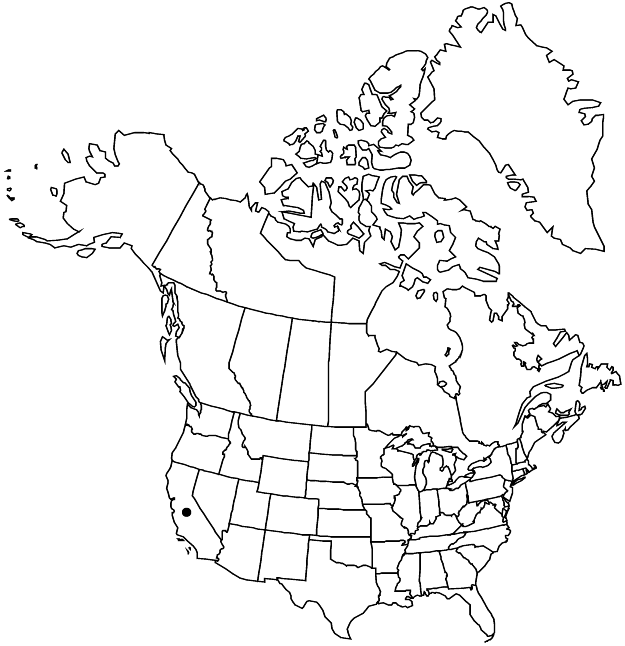Difference between revisions of "Eremogone macradenia var. arcuifolia"
Sida 21: 240. 2004.
FNA>Volume Importer |
FNA>Volume Importer |
||
| Line 10: | Line 10: | ||
|name=Arenaria macradenia var. arcuifolia | |name=Arenaria macradenia var. arcuifolia | ||
|authority=Maguire | |authority=Maguire | ||
| + | |rank=variety | ||
|publication_title=Bull. Torrey Bot. Club | |publication_title=Bull. Torrey Bot. Club | ||
|publication_place=74: 51. 1947 | |publication_place=74: 51. 1947 | ||
| Line 16: | Line 17: | ||
|name=Arenaria kuschei | |name=Arenaria kuschei | ||
|authority=Eastwood | |authority=Eastwood | ||
| + | |rank=species | ||
}} {{Treatment/ID/Synonym | }} {{Treatment/ID/Synonym | ||
|name=Arenaria macradenia var. kuschei | |name=Arenaria macradenia var. kuschei | ||
|authority=(Eastwood) Maguire | |authority=(Eastwood) Maguire | ||
| + | |rank=variety | ||
}} {{Treatment/ID/Synonym | }} {{Treatment/ID/Synonym | ||
|name=Eremogone macradenia var. kuschei | |name=Eremogone macradenia var. kuschei | ||
|authority=(Eastwood) R. L. Hartman & Rabeler | |authority=(Eastwood) R. L. Hartman & Rabeler | ||
| + | |rank=variety | ||
}} | }} | ||
|hierarchy=Caryophyllaceae;Caryophyllaceae subfam. Alsinoideae;Eremogone;Eremogone macradenia;Eremogone macradenia var. arcuifolia | |hierarchy=Caryophyllaceae;Caryophyllaceae subfam. Alsinoideae;Eremogone;Eremogone macradenia;Eremogone macradenia var. arcuifolia | ||
| Line 37: | Line 41: | ||
|elevation=600-2400 m | |elevation=600-2400 m | ||
|distribution=Calif. | |distribution=Calif. | ||
| − | |discussion=<p>While B. Maguire (1947, 1951) regarded < | + | |discussion=<p>While B. Maguire (1947, 1951) regarded <i></i>var.<i> arcuifolia</i> as “a strongly marked variant,” R. L. Hartman (1993) noted that it “intergrades with <i></i>var.<i> macradenia</i> and might be considered the same as the latter.”</p><!-- |
| − | --><p>The collection from “Forest Camp” described as <i>Arenaria</i> macradenia var. kuschei differs from < | + | --><p>The collection from “Forest Camp” described as <i>Arenaria</i> macradenia var. kuschei differs from <i></i>var.<i> arcuifolia</i> in having densely stipitate-glandular pedicels and sepals; it does not deserve taxonomic recognition. Recently, populations of plants matching var. kuschei were discovered in the Liebre Mountains, northwestern Los Angeles County (T. S. Ross and S. Boyd 1996b). Four of the seven populations were mixed, some individuals having the stipitate-glandular pubescence of var. kuschei, and others, the glabrous inflorescences of <i></i>var.<i> arcuifolia</i>. Furthermore, there was an east-to-west trend along the summit of Liebre Mountain from populations with a low frequency of glandular individuals to populations that were strictly glandular (Boyd, pers. comm.).</p> |
|tables= | |tables= | ||
|references= | |references= | ||
| Line 47: | Line 51: | ||
-->{{#Taxon: | -->{{#Taxon: | ||
name=Eremogone macradenia var. arcuifolia | name=Eremogone macradenia var. arcuifolia | ||
| − | |||
|authority=(Maguire) R. L. Hartman & Rabeler | |authority=(Maguire) R. L. Hartman & Rabeler | ||
|rank=variety | |rank=variety | ||
| Line 62: | Line 65: | ||
|publication year=2004 | |publication year=2004 | ||
|special status= | |special status= | ||
| − | |source xml=https://jpend@bitbucket.org/aafc-mbb/fna-data-curation.git/src/ | + | |source xml=https://jpend@bitbucket.org/aafc-mbb/fna-data-curation.git/src/f50eec43f223ca0e34566be0b046453a0960e173/coarse_grained_fna_xml/V5/V5_146.xml |
|subfamily=Caryophyllaceae subfam. Alsinoideae | |subfamily=Caryophyllaceae subfam. Alsinoideae | ||
|genus=Eremogone | |genus=Eremogone | ||
Revision as of 21:51, 16 December 2019
Cauline leaves in 6–12+ pairs; blade curved downward, especially proximal ones, 1.2–2 mm wide. Inflorescences: branches erect to ascending. Flowers: sepals 4.5–7 mm, to 7 mm in fruit, ± glabrous or sparsely to rarely densely stipitate-glandular; nectaries narrowly longitudinally rectangular, truncate, 0.7–0.8 mm, densely minutely pubescent with erect to spreading hairs.
Phenology: Flowering late spring–early summer.
Habitat: Dry slopes and foothills, dry, yellow pine and oak forests
Elevation: 600-2400 m
Discussion
While B. Maguire (1947, 1951) regarded var. arcuifolia as “a strongly marked variant,” R. L. Hartman (1993) noted that it “intergrades with var. macradenia and might be considered the same as the latter.”
The collection from “Forest Camp” described as Arenaria macradenia var. kuschei differs from var. arcuifolia in having densely stipitate-glandular pedicels and sepals; it does not deserve taxonomic recognition. Recently, populations of plants matching var. kuschei were discovered in the Liebre Mountains, northwestern Los Angeles County (T. S. Ross and S. Boyd 1996b). Four of the seven populations were mixed, some individuals having the stipitate-glandular pubescence of var. kuschei, and others, the glabrous inflorescences of var. arcuifolia. Furthermore, there was an east-to-west trend along the summit of Liebre Mountain from populations with a low frequency of glandular individuals to populations that were strictly glandular (Boyd, pers. comm.).
Selected References
None.
